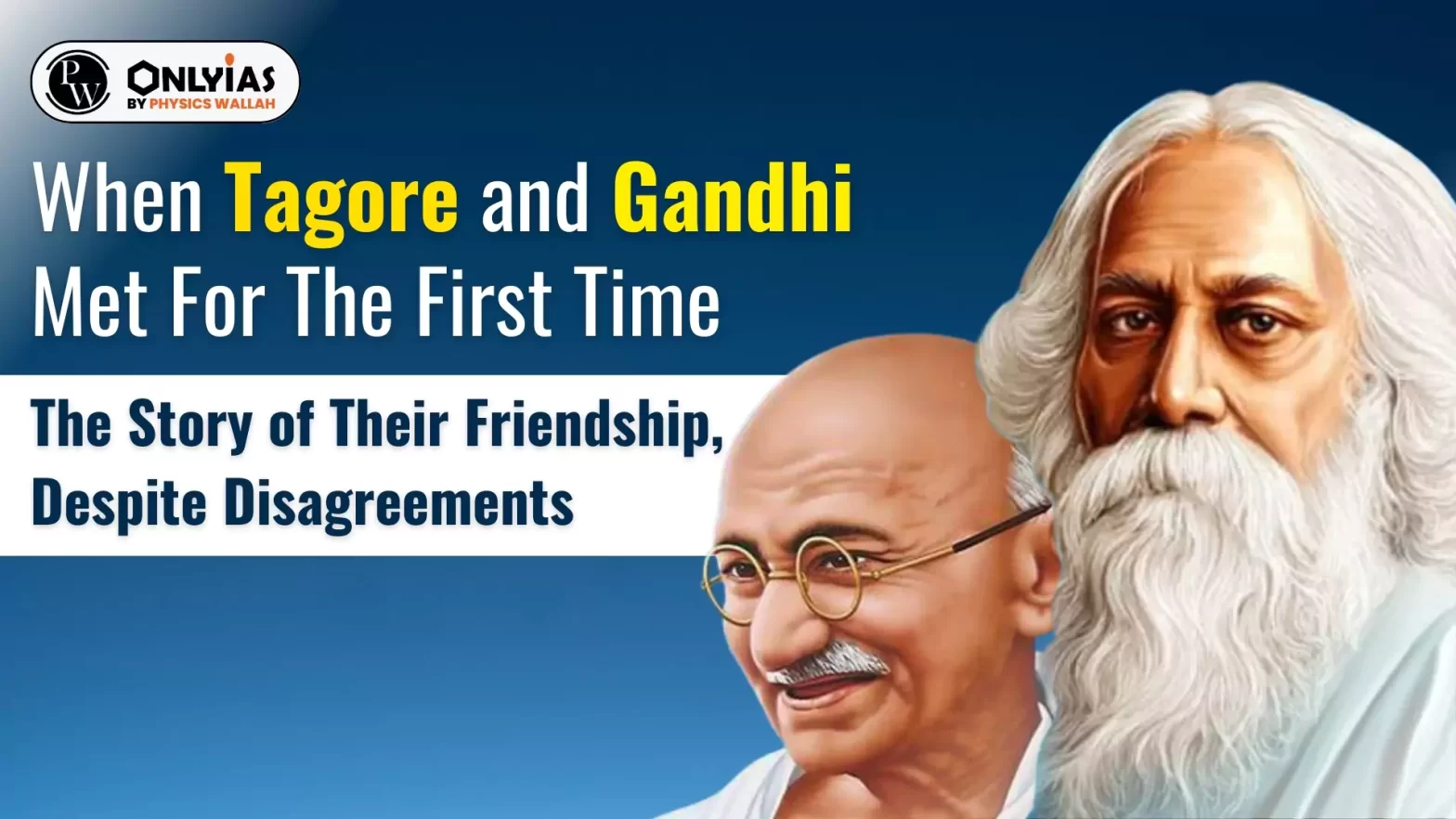![]() 11 Mar 2024
11 Mar 2024

This editorial is based on the news “When Gandhi first met Tagore: The story of their friendship, despite disagreements” which was published in the Indian Express. Mohandas Karamchand Gandhi and Rabindranath Tagore shared an enduring friendship that lasted from 1914-15 till the latter’s demise in 1941.
| Relevancy for Prelims: Contribution of Rabindranath Tagore and Mahatma Gandhi in the Indian Independence Movement, Literary Works of Tagore and Gandhi.
Relevancy for Mains: Modern Indian History from about the middle of the eighteenth century until the present-significant events, personalities and issues. |
|---|
Shantiniketan
|
‘Gandhi Punyaha Din’:
|
|---|
| An example of disagreement between them: In the aftermath of a severe earthquake in Bihar in 1934, Gandhi attributed it to a “divine chastisement” for the perceived wrongs committed by the upper castes against Harijans. Tagore did not agree to these views. |
|---|
Nevertheless, Gandhi and Tagore maintained a profound respect for each other despite their differences on public issues.
| Prelims PYQ (2019):
With reference to the British colonial rule in India, consider the following statements: 1. Mahatma Gandhi was instrumental in the abolition of the system of ‘indentured labour’. 2. In Lord Chelmsford’s War Conference’, Mahatma Gandhi did not support the resolution on recruiting Indians for World War. 3. Consequent upon the breaking of Salt Law by Indian people, the Indian National Congress was declared illegal by the colonial rulers. Which of the statements given above are correct? (a) 1 and 2 only (b) 1 and 3 only (c) 2 and 3 only (d) 1, 2 and 3 Ans: (b) |
|---|
| Mains Question: Describe the emergence of Mahatma Gandhi as a prominent leader in South Africa and summarise the impact of his leadership on the Indian community in South Africa. (15 marks, 250words) |
|---|
| Must Read | |
| NCERT Notes For UPSC | UPSC Daily Current Affairs |
| UPSC Blogs | UPSC Daily Editorials |
| Daily Current Affairs Quiz | Daily Main Answer Writing |
| UPSC Mains Previous Year Papers | UPSC Test Series 2024 |
<div class="new-fform">
</div>
